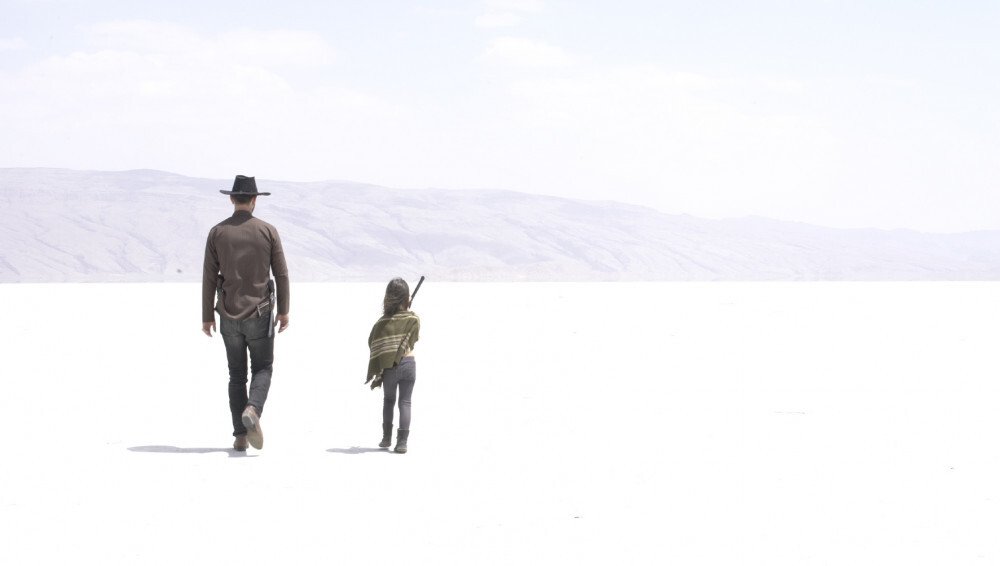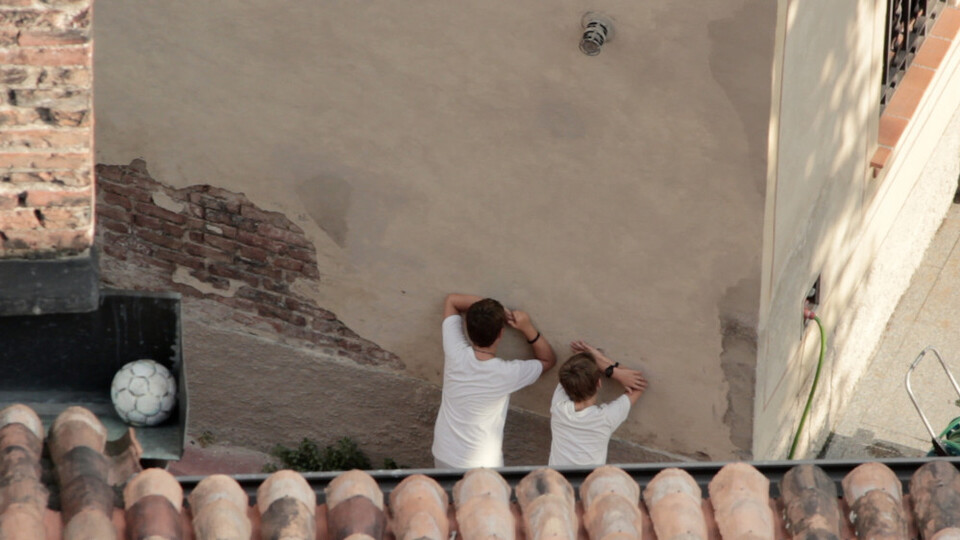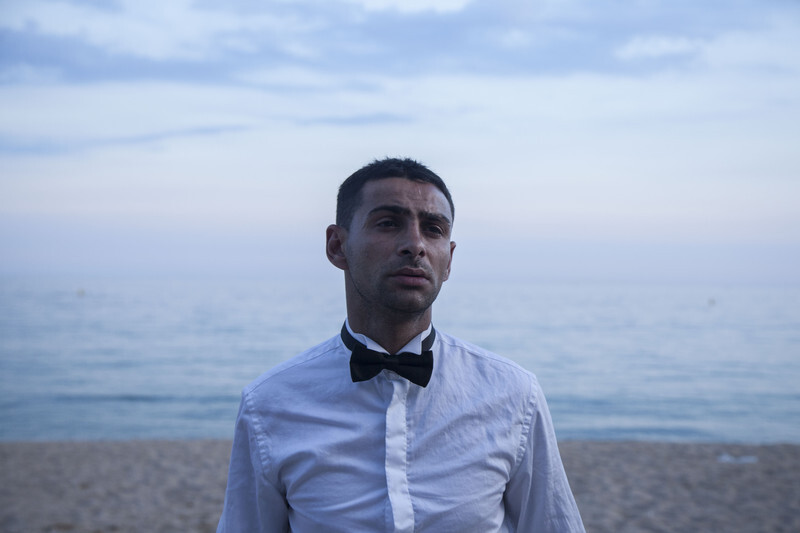Western, Family and Communism
The first shots of the film show Parisians demonstrating and protesting, interspersed with shouted political slogans of Iranian activists. While the situation is very heated in Paris, calmness reigns in Iran. A French family is traveling here in a caravan and getting to know the country. The father films footage of their journey including his wife and daughter. The first third of the film suggests that the issue is a national one, namely that of the Iranian citizens, while the remaining two-thirds shows, however, the French on holiday.
In Western, Famille et Communisme there are two paralel situations, protests in France and peace in Iran, which is nontless based in fear of persecution. Why did you decided for comparison between these two countries? Where did you found the bigest paralels and contrasts?
I didn't go to Iran with the aim of making a film about the country, I went there for family reasons. Then, from the beginning of this trip, I had the title in mind : Western, family and communism. And I made the film according to this title. Finally Iran was just a way of being displaced. As for France, that's the country where I was born and where I live. That's all.
In Iran I found what I expected TINA. "There Is No Alternative". Obviously, this is a dominant discourse you can hear everywhere no matter that it comes from dominant liberal ideology or from the state. The light, the landscapes and the relationship you have with them were the biggest contrasts I felt when travelling around Iran. But the sky is the same. Especially at night. To me, the Big Dipper is a sign of communism. A much more powerful symbol than the sickle and hammer.
On the one hand we are watching comparison of two counties, France and Iran, on the other hand there is personal story of you and your family traveling Iran. Why did you chosen to combine these two perspectives?
Imagine that we're in a train, in a tunnel, and that we can see light at the end of the tunnel. But maybe that's not the way out. Just another train on the same track speeding in our direction. So maybe it's time to jump from the train. Ok, now what do we do ? What can we do ? Where do we start? Let's say we start in Iran. But it could be anywhere else. And let's say we start with a family - it happens to be my family - the most immediate and tangible political unite in my opinion. Isn't the family the basic unite of the political sphere? Now, let's say that our tools will be those of filmmaking.
Let me go back to you first question. What if I didn't mention what happened in France while I was in Iran during the Spring of 2016 ? What if I had ignored this very tensed moment in the French political landscape ? My approach would have been totally despicable, I would have made a purely exotic film. That didn't prevent me to from being subjugated by the light, the landscapes and the people we met along our way Iran. But to me, there was a question of equality in the treatment of the images. In France and in Iran. Protests, sheep, here, there, but today, the 31th of March 2016.
There are some elements that emerges throughout the fim, for example in lighting or sound. But at the same time majority of the scenes seems to originate in the concreate situation. Did you have clear idea about the film before the shoting began? And how it change during the proces of shoting?
I didn't have a clear idea about the film before shooting and editing it. And that was actually my wish. The only path I followed until the end was to answer the question opened by the title, as an horizon, and idea that contained the whole movie : Western, family and communism.



